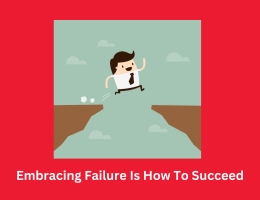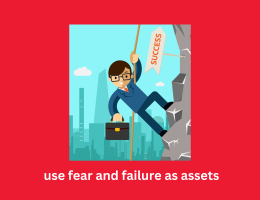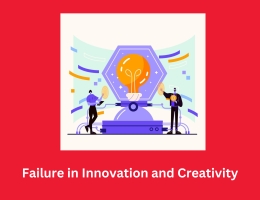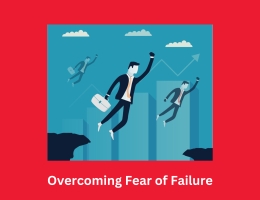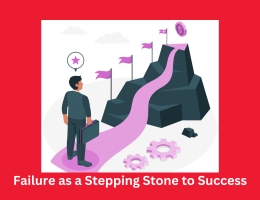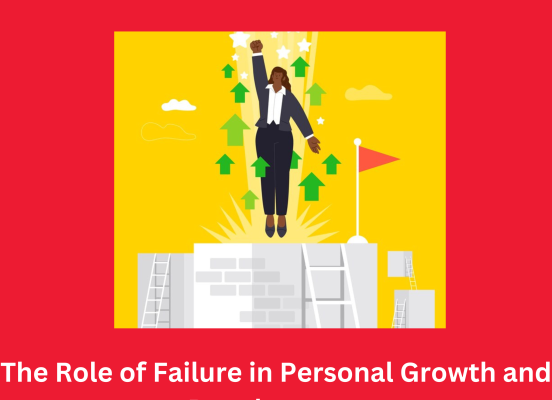
The Role of Failure in Personal Growth and Development
- By admin --
- Sunday, 17 Mar, 2024
Introduction:
Failure is an inevitable part of life, yet its significance extends far beyond mere setbacks. It serves as a powerful catalyst for personal growth and development, shaping individuals in profound ways. In this essay, we will delve into the multifaceted role of failure, exploring how it contributes to the journey of self-discovery, resilience, and ultimate success.
Understanding Failure:
To comprehend the role of failure in personal growth, it is essential to redefine our perception of failure. Rather than viewing it as a final outcome or a reflection of incompetence, we must see it as a temporary setback—a stepping stone on the path to mastery. Failure is not the opposite of success but rather an integral part of it.
Learning and Adaptation:
One of the most significant ways in which failure fosters personal growth is through the process of learning and adaptation. When we fail, we are presented with an opportunity to analyze our mistakes, identify areas for improvement, and acquire new skills. This reflective process not only enhances our competence but also deepens our understanding of ourselves and the world around us.
Moreover, failure teaches us resilience the ability to bounce back from adversity stronger than before. Each failure we encounter strengthens our resilience muscles, enabling us to face future challenges with greater fortitude and determination. Through resilience, we develop the capacity to persevere in the face of obstacles, turning setbacks into stepping stones toward success.
Embracing Vulnerability:
Failure is a valuable lesson in vulnerability, which is an integral part of personal growth and relationships. It forces us to come face to face with our boundaries and weaknesses hence questioning about this belief of being all powerful. Consequently, we learn humility, grace and compassion because it is clear from this extreme end how everyone fails or finds herself in trouble sooner or later.
Furthermore, embracing vulnerability allows us to cultivate authentic relationships based on trust and mutual support. When we are willing to share our failures and shortcomings with others, we create space for genuine connection and understanding. Rather than hiding behind a facade of perfection, we invite others to join us in our journey, fostering a sense of camaraderie and belonging.
Cultivating Growth Mindset:
One cannot comprehend the significance of failure in human development unless they possess a growth mindset, which is the conviction that one may achieve greater success through dedication and hard work.
A growth mentality regards failure as a chance for learning and personal development, in contrast to a fixed mindset that interprets it as proof of innate incapacity.
By adopting a growth mindset, individuals are more likely to persevere in the face of adversity, viewing challenges as opportunities for self-improvement rather than insurmountable obstacles. This mindset shift not only enhances resilience but also fosters a lifelong love of learning and exploration.
Harnessing Failure as Fuel for Success:
Ultimately, failure's transforming power—its capacity to use setbacks as launching pads for success—is what makes it important for human progress. While releasing Harry Potter J.K. Rowling faced rejection letters and so did Thomas Edison when trying to create the light bulb. In fact, disasters have been the source of a lot of the most outstanding success stories in human history.
Each time, failure furnished inspiration to keep going and provide you with new thoughts instead of acting as a barrier. People may additionally harness the transformational capability of failure through redefining it as an important factor of the street in the direction of success. This will permit them to apply failure as gasoline to head ahead rather than as a obstacle.
Conclusion:
In conclusion, the significance of failure in the course of human growth cannot be overstated. Failure is indispensable part of life which provides an opportunity for essential development, adaptability and courage. It is by no means a sign of weakness or ineptitude. Through accepting failure as an inevitable aspect of the path to achievement, people may realise their full potential and utilise setbacks as stepping stones towards both career and personal fulfilment.

